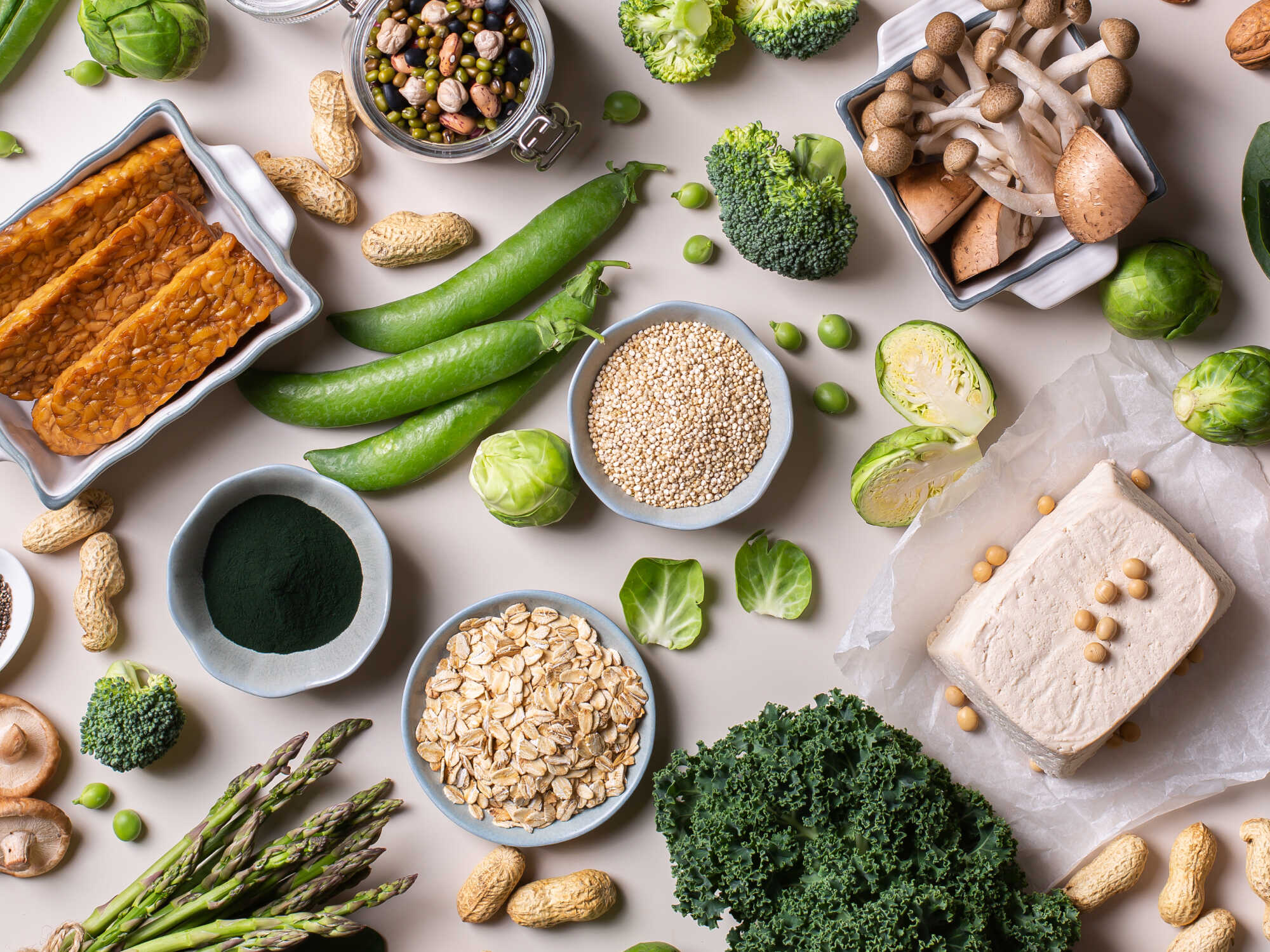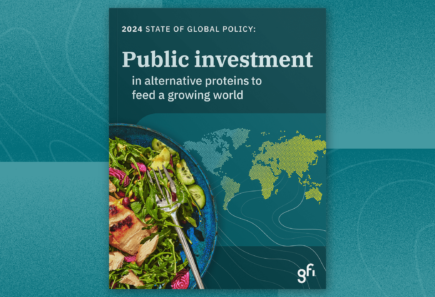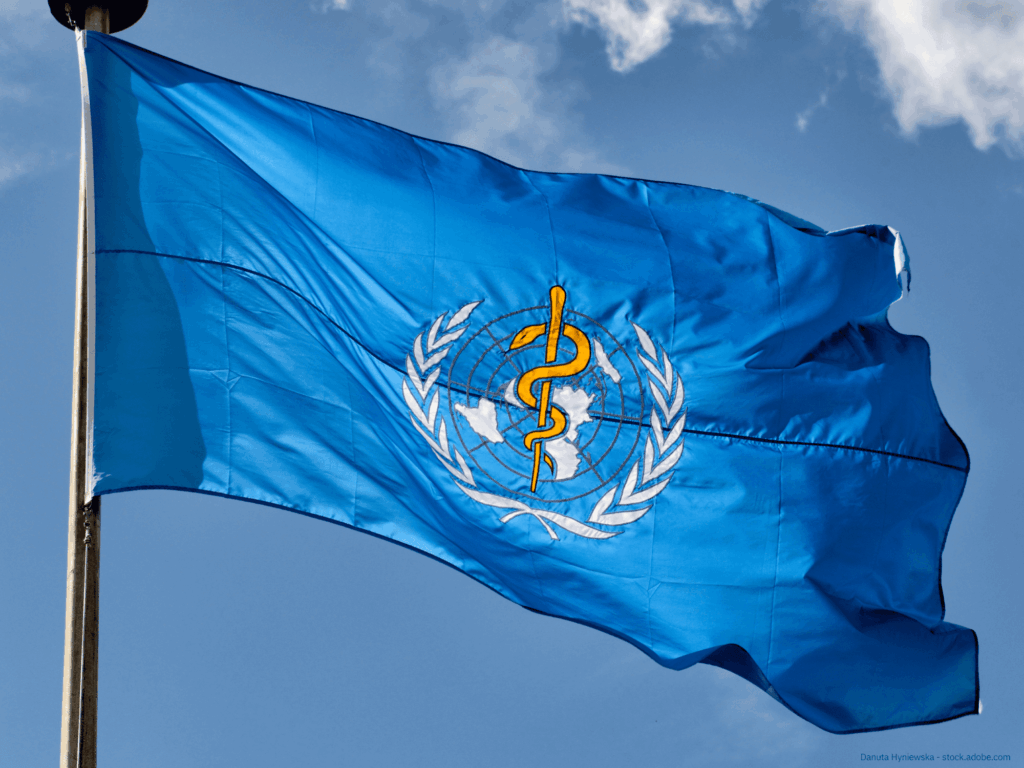
Our role in contributing to Codex standards for alternative proteins
The Codex Alimentarius is a collection of international food standards and related texts developed by the Codex Alimentarius Commission. We participate in the development of Codex standards and texts related to alternative proteins.
Save this document
Background
The Codex Alimentarius Commission (CAC) was established by the United Nations Food and Agriculture Organization (FAO) and the World Health Organization (WHO) in 1963 to create food standards and texts aimed at protecting consumer health and ensuring international fair trade. The CAC is composed of member countries, one member organization (the European Union), and both intergovernmental and non-governmental observer organizations, including GFI. Codex texts aim to protect consumer health and ensure fair practices in the food trade. The Codex Alimentarius serves as a point of reference for the food industry, national regulatory agencies, and international food trade stakeholders.
What does it mean to be a Codex observer?
The CAC grants official “observer” status to international non-governmental organizations such as GFI and industry groups to allow these stakeholders to participate in developing Codex texts. Only members are allowed to vote on the adoption of Codex texts, but observers can participate meaningfully in the standard-setting process by providing input and technical advice. Observers may comment orally and in writing at the annual CAC meeting and meetings of Codex’s committees. Observers may also participate in working groups tasked with drafting Codex texts. Currently, we are the only Codex observer focused entirely on alternative proteins, although other observers share adjacent interests.
What do Codex texts do?
Although Codex standards and related texts are widely referenced, they are non-binding. Still, they are highly influential. In many cases, Codex standards serve as the basis for national legislation, meaning they are adopted by governments at the national level. Codex standards are also referenced in the World Trade Organization (WTO) Agreement on Sanitary and Phytosanitary Measures, meaning that WTO member countries that want to apply stricter food safety standards than those set by Codex may be required to provide a scientific justification for those standards to the WTO.
Alternative Proteins at Codex
In 2021, the same year that GFI joined Codex, WHO and FAO asked the CAC to consider how to address the rapidly changing food landscape, bringing the CAC’s attention to a broad range of foods identified as new food sources and production systems (NFPS). NFPS includes plant-based, cultivated, and fermentation-derived proteins as well as products derived from insects, jellyfish, and algae. The Codex Executive Committee (CCEXEC) formed a special subcommittee in 2022 to gather information about the regulatory status of NFPS in various countries and to solicit recommendations regarding how Codex should address issues related to NFPS as they arise. At the 2023 CAC annual meeting, the Commission decided by consensus that no special committee or task force is necessary to address NFPS issues, and existing Codex committees and procedural mechanisms are sufficient to address topics related to NFPS.
How we participate in Codex
As a Codex observer, we contribute our expertise on alternative proteins through in-person attendance at Codex’s committee meetings and written interventions. Our goal is to help ensure that any Codex texts related to alternative proteins are kept up to date and based on sound science.
Codex proposals related to alternative proteins
Codex Committee on Nutrition and Foods for Special Dietary Uses (CCNFSDU)
In 2023, the U.S. and Canada Codex delegations submitted a new work proposal to CCNFSDU recommending that the committee develop guidelines including general principles for the nutrition composition of foods and beverages made from plant-based and other alternative protein sources. CCNFSDU tabled the proposal at its 2023 meeting, and the U.S. and Canada submitted a revised version of the proposal focused exclusively on plant-based proteins ahead of the 2024 CCNFSDU. The proposal was once again tabled, but is expected to be resubmitted ahead of CCNFSDU’s next meeting in 2026.
Codex Committee on Food Additives (CCFA)
In 2025, the Singapore and China Codex delegations brought a new work proposal to CCFA for the development of guidelines for the food safety assessment of cell culture media components in cell-based food production. CCFA pushed consideration of the proposal to 2026, and in the interim, GFI joined a working group formed to refine the proposal. The working group will be co-chaired by Singapore, China, Saudi Arabia, and Korea.
Related resources

The State of Global Policy: Alternative proteins
Our annual State of Global Policy report tracks public investment in alternative proteins and showcases the actions governments take to position themselves as leaders in the field.

Recommendations for President Trump: Building an innovative agricultural bioeconomy
The United States must restore its leadership in biotechnology and biomanufacturing. Investment in food biomanufacturing R&D will bolster agricultural innovation.

WHO and GFI Convene Historic Workshop to Discuss Global Regulations for Alternative Proteins
The World Health Organization’s Regional Office for the Western Pacific (WHO WPRO) joined forces with GFI’s global affiliates to host a historic two-day workshop focused on “Regulatory and Food Safety Aspects of Alternative Proteins for Conventional Animal Products.”

BREAKING: Regulators approve cultivated meat sales in Australia
Food Standards Australia New Zealand (FSANZ) officially announced Australia’s first-ever approval of a cultivated meat product, opening up a potentially lucrative new market for the cellular agriculture sector and setting an important precedent for global regulators.
